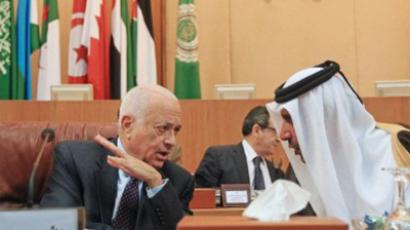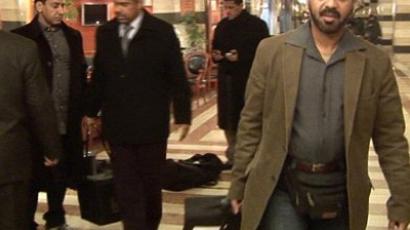Fear grips Syrians as Arab League suspends mission
Now, that the Arab League's monitoring mission in Syria has been suspended due to a sharp rise in violence, Syrians are preparing for the worst. Opposition suggests that over 200 people have been killed in the past four days across the country.
Syria's state TV reported on Sunday that Damascus regrets the League's decision, saying it may result in more bloodshed and foreign military intervention.A few hours later, the Arab League's decision to end what it described as "a useful instrument" was slammed by Russia, who called for more monitors in Syria.“We were surprised that after taking the decision to extend the mission, some countries, especially the Gulf states, refused to take part and withdrew their missions. This raises questions,” said Russia’s foreign minister, Sergey Lavrov, adding that Moscow would like to receive a copy of the Arab observers’ report.Over the last few weeks, RT accompanied the observers on many of their excursions into some of the country’s more restive areas. The mission’s presence has enabled an increase in foreign media in the country – many of whom also joined the observers on their trips. It has been considered a safer way of visiting such areas, as they are accompanied by government security officers and it is believed, or at least hoped, that, whilst they are in an area, security forces will not shoot.That is what the ordinary Syrians felt too. When the observers arrived, the protesters felt temporarily safe enough to express their views openly. But once the observers leave and the protesters are left alone, people say punishment usually follows.Then there was the Gulf State monitors’ withdrawal at the beginning of the week, after the observers had presented their report to the Arab League. RT’s crew was at the hotel, as the remaining monitors said their goodbyes – some, exchanging numbers and taking photos with their colleagues.This has been a major blow for the mission. It seems that blow could turn out to be a fatal one.A senior source from the opposition inside the country, the NCC, told RT that he thought observers were hoping to restart their mission soon. He believed that their decision was akin to a form of protest against the growing violence and that, perhaps, once it had calmed down, they could resume work.But on the day that the Gulf States monitors departed, one observer had hinted to RT’s correspondent Sarah Firth that the rest of them might not be far behind.The talk of further training for the monitors and increasing their numbers seems to have been forgotten as well, despite strengthening the mission being more important now that ever.On Friday, the monitors had taken the tailing journalists on a tour around the Christian area of Damascus, where, like most Fridays, the streets were almost deserted – choosing not to venture further afield. Unimpressed afterwards, RT’s crew had pushed on with some other journalists to a suburb, now controlled by the Free Syrian Army.But without the observers and the protesters’ concern about the security forces’ imminent arrival, came a more serious warning. When gunshots rang out in the distance, RT’s team had to leave. There was no guarantee journalists would not be caught in the middle of what locals say are regular crackdowns to try to regain control of the area, though, for the time being, the Free Syrian Army remains in control there.Without the observers, many of these places will become almost inaccessible again, and with no one to monitor the ground situation, locals living in these areas say they fear the danger has now greatly increased.














